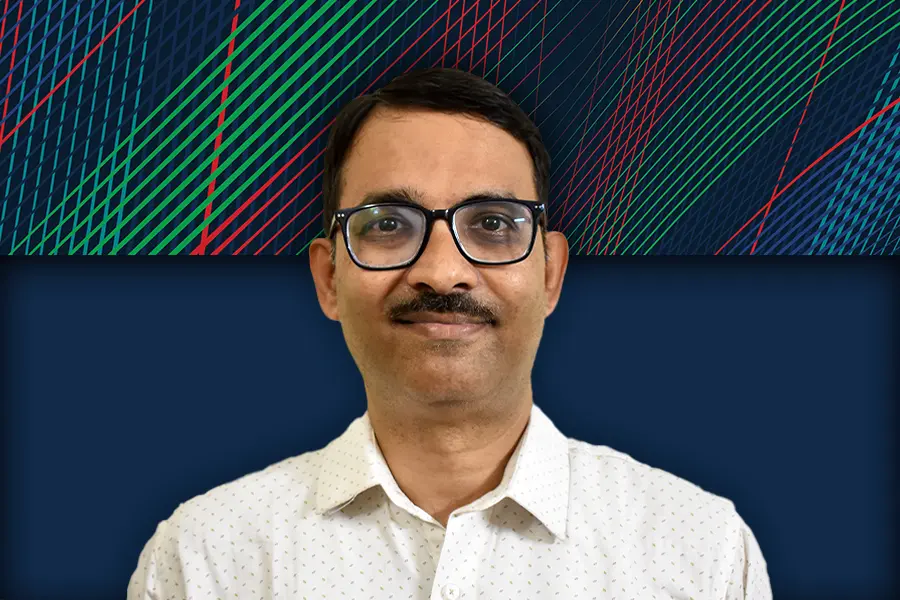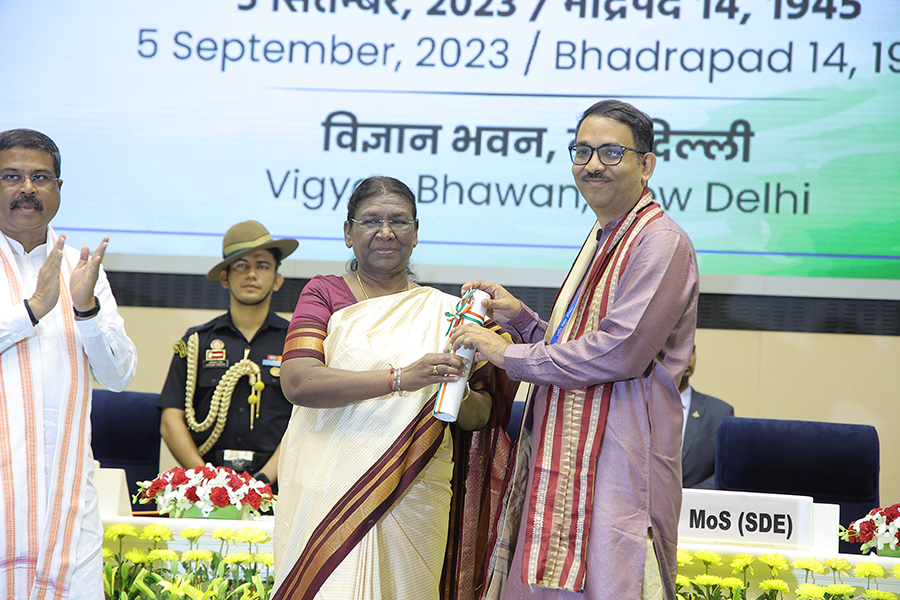
Causing Reactions
CMU alumnus Sayam Sen Gupta receives India’s National Teachers Award
By Kristin Heuring
A tutor when he was a high school student sparked Carnegie Mellon University alumnus Sayam Sen Gupta's interest in chemistry. Now a professor at the Indian Institute of Science Education and Research (IISER) Kolkata, he wants to catalyze the same passion in his own students.
"This teacher showed me the immense power of chemistry, the way we can transform matter at our will," says Sayam, who graduated from Mellon College of Science in 2002 with his Ph.D. in chemistry. "The power to excite the students about this great subject and convince them that chemistry is truly a central science is what was really compelling for me."
For his dedication to his students, Sayam received India's National Teachers Award in 2023. He was honored and humbled by the award, and he feels would not be where he is without the dedication of his own teachers and the education he received at Carnegie Mellon.
"Sayam is spectacularly brilliant. He is a natural leader. He is creative. He inspires people around him with his enthusiasm for science and with his bigger picture thinking. He is charismatic and ebullient as a researcher and teacher."
"I have been privileged to be taught by some outstanding teachers at Carnegie Mellon," Sayam says. "My CMU education was absolutely critical to what I am today. Both the research and the courses I took have had a great influence on my career."
As a student taking graduate courses in Carnegie Mellon's Department of Chemistry, he was inspired by Carnegie Mellon faculty members such as Professor Bruce Armitage, J.C. Warner University Professor of Natural Sciences Krzysztof Matyjaszewski and Teresa Heinz Professor in Green Chemistry Terrence Collins.
Collins advised Sayam on his doctoral work in iron tetra-amido macrocyclic ligands (Fe-TAMLs), which are environmentally friendly catalysts that can be used to oxidize organic compounds. In the Collins lab, Sayam mentored six undergraduate students, teaching them about green chemistry. Collins says that Sayam was a dedicated, productive lab member.
"Sayam is spectacularly brilliant," says Collins, who is director of the Institute for Green Science. "He is a natural leader. He is creative. He inspires people around him with his enthusiasm for science and with his bigger picture thinking. He is charismatic and ebullient as a researcher and teacher."
After earning his doctorate, Sayam taught at IISER Pune, then a new institute.
"I was asked to teach the first-year class. It was a terrific experience," he says. "The students, some of the best from India, were terrific. I really enjoyed teaching them."
While at Pune, he helped found the Exciting Science Group, an initiative meant to share science with young students. Through the Exciting Science Group, Sayam partnered with local underresourced schools to connect them with researchers and help them learn about conducting research using the scientific method.
"Looking forward, I see Sayam as India's best leadership opportunity for bringing understanding of endocrine disruption and its many challenges to the Indian chemical enterprise. This is the most important element right now for sustainability education in chemistry everywhere in the world."
In 2016, Sayam joined IISER Kolkata, where he teaches chemistry classes for first-year students.
"I had an opportunity to do live demonstrations in the class of a phenomenon I was teaching," Sayam says. "The way their eyes lit up during the demonstration was truly rewarding."
Besides teaching, Sen Gupta conducts research, heading a lab of 10 graduate students. He investigates the use of biology-inspired catalysis and materials, with a strong focus on Fe-TAML, the same catalysts he began investigating in the Collins lab. He is also working to develop catalysts for reducing carbon dioxide using solar energy.
"Sayam is himself a catalyst in the domain of Indian chemical education for speeding up the processes of establishing authentic safety and sustainability dimensions," Collins says.
"Looking forward, I see Sayam as India's best leadership opportunity for bringing understanding of endocrine disruption and its many challenges to the Indian chemical enterprise. This is the most important element right now for sustainability education in chemistry everywhere in the world."
